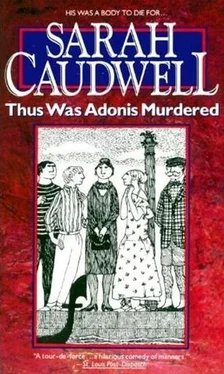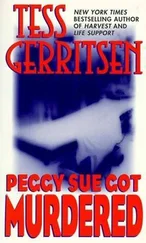Selena drove past the shop. Turning right, some hundred yards beyond it, she brought her motorcar to a halt in a quiet side-street.
“On leaving,” she said, as she locked the vehicle, “I think, Cantrip, that it might be prudent—”
“I am not,” said Cantrip, “a complete imbecile. If a chap’s going east and stops casually to look in an antique shop, it’s definitely fishy if he turns west again when he comes out of it. I’ll turn left, left and left again and rendezvous here. When I leave—”
“We’ll give you two minutes’ start,” said Selena, “to make sure you’re not being followed.”
“Roger,” said Cantrip. “Over and out. See you all later.”
“Cantrip,” said Selena, “you will be careful?”
“Absolutely,” said Cantrip.
He left us and began to stroll back along the New King’s Road. Crossing to the other side, the rest of us maintained an even pace with him and, as we hoped, an equal appearance of nonchaleur. Reaching the public house, we sat down at the wrought-iron table and watched him. As if his eye had been caught by some object of interest in the window, he paused outside the Major’s antique shop.
The Major, in displaying his wares, had made no attempt at uncluttered elegance. He had evidently been happy to surround a Jacobean sideboard with a set of Sheraton chairs — I supposed, in the light of what Benjamin had said, that they were all faked; but close beside them there was a china umbrella-stand in a sort of willow pattern, which I thought must be genuine — it seemed too hideous for anyone to have wished to copy it.
“Our presence here,” said Ragwort, “would appear more natural if we were drinking something. Shall I get some beer?”
“Excellent,” said Selena. “And some sandwiches. It may be all we’ll get for lunch.”
Ragwort went indoors in search of food and drink. Selena and I, remaining seated in our chairs on the pavement, saw Cantrip enter the antique shop and begin to pootle. There emerged in due course from the interior a figure whom we readily identified, even with the width of the road between us, as the Major: his bristling white moustache and bronzed complexion were easily recognized. We saw him approach Cantrip, asking him, presumably, whether he was more particularly interested in the Sheraton chairs or the china umbrella-stand. Cantrip looked up.
“Ah,” said Selena, “that’s Cantrip’s start of surprise.”
Ragwort returned, carrying three pints of beer and a plate of sausage rolls: the barman had greeted with derision his request for sandwiches, reminding him, in a manner which Ragwort had found offensive, that the bread delivery men were on strike. Sipping the beer and nibbling cautiously at the sausage rolls, we continued to observe the forefront of the antique shop.
“Agreement has now been reached,” said Ragwort, “on the question whether Cantrip is a frightful ass.”
The sausage rolls were even nastier than the sandwiches would probably have been. I began to wish that the sausage roll deliverers had also been on strike.
“I think,” said Selena, “that the moment has now been reached at which the Major metaphorically falls on Cantrip’s neck in a metaphorical embrace.” I agreed that this seemed a reasonable conclusion — the Major had produced from some cupboard or other a bottle and two glasses.
“I suppose,” said Ragwort, “that there’s no danger of him trying to poison Cantrip?”
“I hardly think,” I said, “that Cantrip can have said anything so far to provoke him to such extremities. Besides, he is drinking from the same bottle.” The relaxed and convivial attitude of those in the antique shop suggested that their conversation was concerned rather with military anecdote than with any overtures for the purchase of stolen property. We could not in fairness blame Cantrip for taking his time — we had warned him to be slow and subtle. I confess, however, that I began to feel that he was taking longer than was altogether necessary: comfortably ensconced and drinking at the Major’s expense, he had become, it seemed to me, a little forgetful of the tedium and discomfort endured by those watching over him.
On account of the bread strike it was the time, as my readers may remember, when the exchange of recipes for baking at home had displaced the Economy as the chief topic of light conversation. Ragwort had a recipe, obtained from his grandmother, infinitely superior to any which had appeared in the public press. Selena asked him to write it out for her. Watching him engaged on this task and listening to his lecture on the importance of accurate measurement, we forgot for several minutes to take any notice of what was happening in the antique shop.
When we next looked the Major was holding a gun.
Julia is no doubt right in attributing Ragwort’s unconquered virtue to the expression of aloof disapproval which he adopts when confronted with anything in the nature of a proposition. It is also true, however, that he can run extremely fast: on Sundays during the cricket season he is in great demand in his native Sussex village on account of his speed between the wickets. While Selena and I were still waiting impatiently at the kerbside for a safe passage through the traffic, Ragwort, with no worse mischief than might befall his immortal soul from the curses of a startled lorry driver, was across.
Selena’s impatience was, I confess, rather greater than my own. Little as I liked the prospect of the evening newspaper containing the headline “Barristers Shot in Fulham Fracas,” I did not think it would be improved by the insertion of the words “and Oxford Don.” This seemed to me precisely the sort of moment at which the proper course is to summon a constable. Unfortunately, there was none at hand; and Ragwort and Selena, with the impetuous enthusiasm of youth, seemed unlikely to wait until one arrived. I could not, I felt, with any semblance of decorum, remain on one side of the New King’s Road while the junior members of 62 New Square struggled with an armed maniac on the other.
For a few moments our view of the antique shop was obscured by the passage of an articulated lorry. When we could again see the interior, the scene had changed dramatically: it was now Cantrip who was holding the gun. I perceived that I must have wronged him in doubting his skill at karate. With a movement of amazing swiftness, he had disarmed the Major and would now lead him forth into the New King’s Road; and would keep him covered while Ragwort, now standing slightly disconcerted outside the shop, summoned assistance from the appropriate authorities.
Nothing of the sort occurred. After a few moments, Cantrip put down the gun. He turned so that his back was towards us. Ragwort continued to stand outside, apparently lost in admiration of the umbrella-stand. A driver who had slowed down to let Selena and myself cross the road banged impatiently on his horn: we waved apologetically and stepped back from the kerbside — there no longer seemed any point in crossing.
What one so much admires in Selena is her instinct for what the moment requires: she went straight to the bar and came back with three large Scotches.
Ragwort, returning to us at a more prudent pace than he had left, was unable to explain the incident. Cantrip, it seemed, observing his presence, had turned away from the window, put his hands behind his back and pointed both thumbs upwards: this had been construed by Ragwort as meaning that all was well. He had then spread his palms and made a pushing gesture: Ragwort had taken this to indicate a desire to continue undisturbed his tete-a-tete with the Major.
We continued to watch the window of the antique shop. Cantrip and the Major had both sat down again and were engaged in apparently amiable conversation. We saw the Major open another bottle.
Читать дальше











